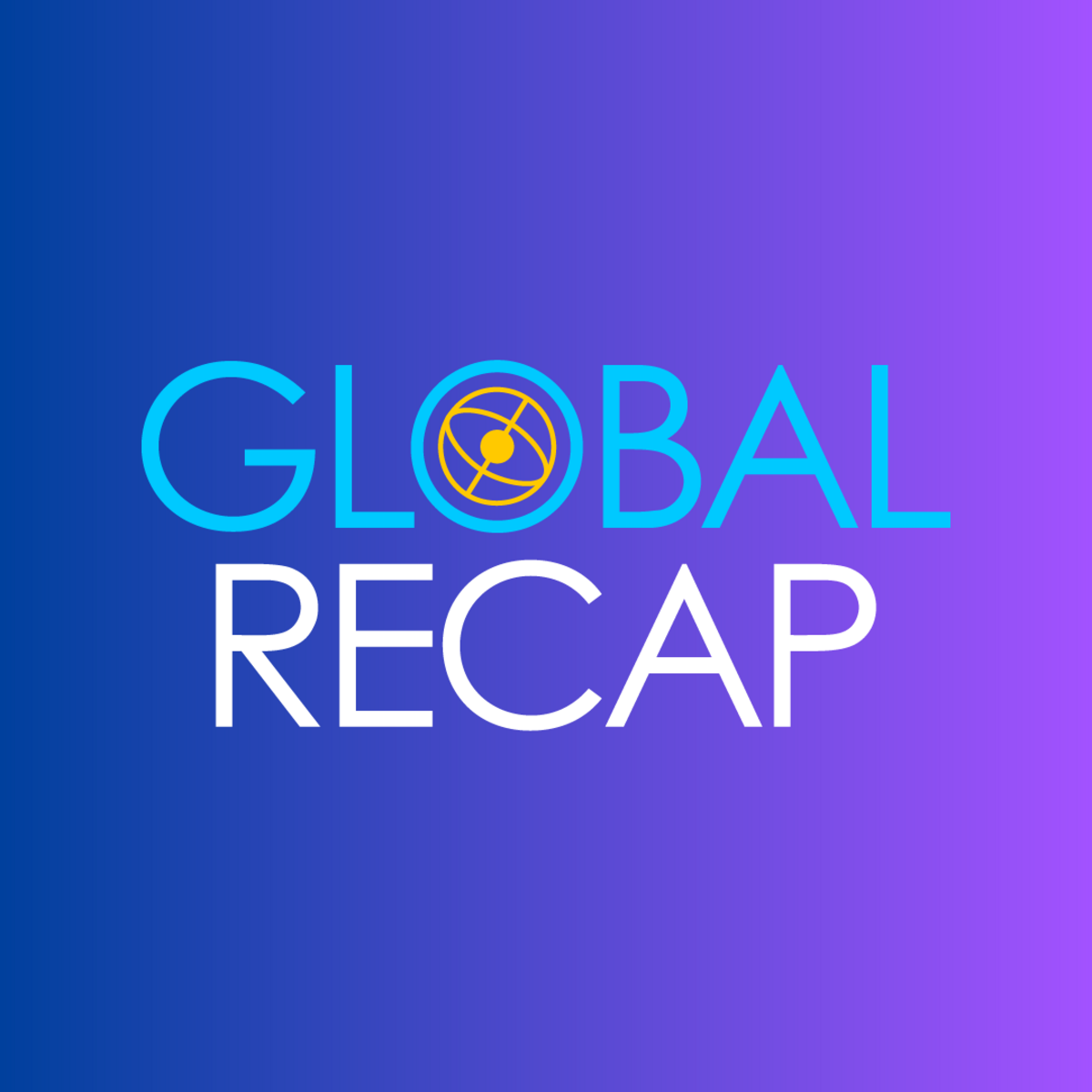
Hi Global Recap readers,
Today’s one of those days I’m diving into WWII history, the inner workings of US hegemony, and tossing in a bit of CIA conspiracy for good measure.
(It’s featured in the story about Macron’s nuclear umbrella policy). 👇
🇷🇺 RUSSIA
Putin’s Regret
Over Ukraine War
In a surprising twist—if you believe him, that is—Belarusian “President” Alexander Lukashenko revealed that his ally, Putin, regrets the full-scale war in Ukraine.
I strongly suggest watching the interview above. Lukashenko also shares his thoughts on the Wagner Group mutiny led by Prigozhin. Remember him?
Here are some key points from it:
Lukashenko’s Revelation
Lukashenko shared that Putin “didn’t expect it would turn into such a war.”
He claimed that Putin was ready to negotiate early on, addressing issues like NATO, demilitarization, and the treatment of Russian speakers in Ukraine.
Lukashenko made these comments during an interview with Mario Nawfal on X.
He suggested that Putin’s regret stems from the massive loss of life.
🤔 Thoughts: I don’t know what to make of this. My gut says this is being put out there to recast Putin as the reasonable one who wants to end the war, while making Zelenskyy look like the one dragging it out and causing more bloodshed. Feels like a calculated narrative shift.
This doesn’t mean there’s no truth to it—at least the regret part. Putin probably thought the invasion would send Zelenskyy running, clearing the way for a quick victory. But obviously, that didn’t happen.
Blame Game
Lukashenko pointed fingers at former UK Prime Minister Boris Johnson, accusing him of preventing Ukrainian President Volodymyr Zelenskyy from pursuing peace in 2022.
He alleged that Johnson “forbade Zelenskyy to agree to peace” during the Istanbul peace process.
Lukashenko also criticized US President Joe Biden, calling him too weak to make independent decisions.
The Bigger Picture
Despite widespread analysis from experts, Lukashenko dismissed the idea that the war was about NATO expansion. Instead, he claimed that Russia’s actions were driven by perceived threats from Ukraine.
He emphasized that Putin saw Ukraine as a direct threat to Russia.
Lukashenko himself has refused to send Belarusian troops to fight in the war.

🇺🇸 UNITED STATES
Trump’s Ultimatum (Again)
President Trump has issued his “last” ultimatum to Hamas, demanding the release of Israeli hostages or face “Hell.”
The Ultimatum
Trump’s blunt message was sent soon after meeting eight freed hostages at the White House.
The Hostage Situation
There are still 59 individuals held by Hamas in Gaza.
Israeli intelligence confirms 35 hostages are dead, 22 are alive, and the status of two remains unknown.
Among the hostages are five Americans, including 21-year-old Edan Alexander, who is believed to be alive.
Breaking Diplomatic Norms
The US has taken an unprecedented step by negotiating directly with Hamas.
Historically, the US avoids dialogue with groups it designates as terrorist organizations.
Trump’s special envoy, Adam Boehler, is leading these talks, with Israel reportedly consulted.
Gaza Ceasefire in Jeopardy
Hamas claims Trump’s comments could derail the fragile ceasefire.
A Hamas spokesperson warned that the remarks might embolden Israel to avoid fulfilling its obligations.
The ceasefire agreement’s second phase remains uncertain, with both sides trading accusations.

🇺🇸 UNITED STATES
Spy Drone Near Iran

The US Navy’s MQ-4C Triton.
Tensions are heating up in the Persian Gulf as a US military drone was spotted flying dangerously close to Iranian airspace.
Is this a show of force or a prelude to something bigger?
Drone Details

The drone in question, an MQ-4C Triton, is a high-tech surveillance aircraft capable of staying airborne for over 24 hours.
It was tracked near Iran’s Kish Island, home to several naval bases.
The drone disappeared from radar after a 12-hour flight.
Iran has a history of shooting down similar drones, like in 2019.
Why It Matters
This doesn’t seem to a random flyby.
The US recently flew B-52 bombers over the Middle East as a show of force.
On top of that, Defense Secretary Pete Hegseth signed a directive last month, loosening Biden-era rules on airstrikes and commando missions by cutting back executive oversight. Coincidence?
President Trump’s administration is ramping up pressure on Tehran to halt uranium enrichment.
Iran’s Supreme Leader dismissed negotiations with the US as “neither smart, wise, nor honorable.”
What’s Next?
Expect more reconnaissance missions and diplomatic maneuvering as both sides try to avoid outright conflict.
Trump campaigned as a “peacemaker,” so I highly doubt his first instinct is, “Let’s start a war.”
Experts warn that further incursions could lead to heightened military activity.
Diplomatic efforts will likely focus on de-escalation, but the risk of confrontation remains high.

🇫🇷 FRANCE
Macron’s Nuclear Umbrella
French President Emmanuel Macron has thrown a political curveball, suggesting France might extend its nuclear umbrella to European allies.
It’s a clear move to position France as the region’s dominant military power, especially as the US continues to pull back from international defense commitments.
Macron’s Big Announcement
In a televised address, Macron proposed opening a debate on sharing France’s nuclear deterrence with European partners.
France and the UK are Europe’s only nuclear powers.
Macron’s nuclear strategy has always been defensive, focused on protecting France’s interests.
German Chancellor-in-waiting Friedrich Merz has called for talks on expanding nuclear protection.
Why Now?
Macron’s timing is no coincidence—it’s a direct response to rising global tensions and the shifting tone from the US toward the EU in the Ukraine-Russia conflict.
Russia’s aggression has made Europe feel vulnerable.
The US, under its new administration, has disrupted the international order, leaving Europe questioning its reliability.
Macron emphasized that ignoring these threats would be “madness.”
Defense Spending Dilemma
Macron also pledged to increase France’s defense budget, but there’s a catch.
He promised no tax hikes to fund this, meaning tough budget choices ahead.
France’s budget deficit is already a headache for his government.
Britain and Germany have also announced major defense spending boosts.
What’s Next?
This announcement sets the stage for a crucial European Union defense summit.
France and the UK are working on a peace plan for Ukraine to present to the US.
Macron aims to mend strained ties between Washington and Kyiv.
The debate on nuclear deterrence could redefine Europe’s security landscape.
🤔 Thoughts on NATO
While I understand why some argue for the US to withdraw from NATO, I personally think it's a bad idea, and here's why:

Seated from left to right: UK Prime Minister Winston Churchill, US President Franklin D. Roosevelt, and General Secretary of the Communist Party of the Soviet Union Joseph Stalin.
It’s no accident that the EU lacks defense capabilities.
Put yourself in the US’s shoes. After WWII, which granted the US immense global power, would you want to see that influence diminish?
After WWII, several factors held the EU back from focusing on military power, with the US stepping in to fill the gap. Over time, however, this has led to the EU becoming overly reliant on the US—possibly to its own disadvantage.
And one of the biggest challenges to US hegemony in the region is the EU becoming militarily and economically independent.
Now, one cannot be sure whether this was the US’s intention from the start, but it certainly evolved into it.
To maintain its influence and continue selling weapons to the EU, the US needs to ensure that the EU remains heavily dependent on it.
Take South Korea, for example. From 1979 until 2020-2021, the country had its missile payload limits and range capped. The range restrictions were gradually relaxed to 186 miles (300km) in 2001 and at 487 miles (800 km).
This was partly to avoid escalating regional tensions.
But why would the US sell such weapons to South Korea if it didn’t want those missiles in the region in the first place?

South Korean President Park Chung Hee shakes hands with US President John F. Kennedy. Park gained a reputation for pushing South Korea toward military self-reliance and even advocated for the development of its own nuclear weapons program.
Incidentally, this US-Korea telegram from November 1979 touches on Korea's missile ambitions, first discussed in September 1979.
President Park was assassinated in October 1979.
Tinfoil: Some suggest the assassin had ties to the CIA.
While you might oppose US hegemony as an American citizen, the reason the US holds such economic sway is the dollar’s status as the global reserve currency.
Since the USD, whether in cash or government bonds, is the default for international trade, countries are essentially required to hold it.
Bonds, in essence, represents US debt. The lavish spending in the US is funded partly by other nations, who keep the dollar in circulation.
The US dollar is only "backed by the full faith and credit of the US government," rather than tangible assets like gold.
That faith stems from the US’s status as the uncontested hegemonic power, both militarily and economically. This is what drives other nations to trust and continue purchasing USD—ultimately supporting the American lifestyle.
So, if the US pulls out of NATO and the EU becomes more independent militarily and economically, will the US still have the same level of influence in the region a decade or two from now?
There may be a good reason why the US has been heavily “subsidizing” the region’s security for so long.

📊 POLL
Question
The "thoughts" I shared above are different from my usual quick takes on various topics. Typically, I keep those brief and to the point.
You had initially agreed to continue with this format, but now I'd love to hear your feedback on the style. After all, it's your input that has helped shape this newsletter into what it is today.
If you have any other thoughts or ideas that complement the above points, feel free to share them! I’d love to read about your insights.
Do you mind me occasionally writing these long "thoughts" and historical context?

🇨🇦 CANADA
Alberta’s US Statehood Bid
A group of Albertans, led by lawyer Jeffrey Rath, is heading to Washington to explore the possibility of Alberta becoming the 51st US state.
Frustrated with Ottawa’s governance, they’re seeking either independence or integration with the United States.
Why Alberta Wants Out
Years of dissatisfaction with Canada’s federal government have fueled this movement.
Rath criticizes Ottawa for being “out of touch” with Alberta’s energy realities.
He argues that Alberta’s oil and gas industry has been stifled by federal policies.
The Alberta Prosperity Project, with thousands of members, supports exploring sovereignty or statehood.
Trump’s Role in the Conversation
Former President Donald Trump has been vocal about making Canada the 51st state, sparking mixed reactions.
Trump’s comments have intrigued some Albertans, while others see them as a threat to Canadian sovereignty.
Rath’s delegation aims to gauge Washington’s interest in Alberta’s independence or statehood.
Economic and Political Frustrations
Rath doesn’t hold back when discussing Canada’s shortcomings.
He claims Ottawa’s failure to meet NATO defense spending targets undermines Canada’s sovereignty.
Alberta’s economic contributions, like $14 billion annually to Quebec, are a sore point.
Rath believes adopting the US dollar could simplify trade and boost Alberta’s economy.
But does this hold any weight?



